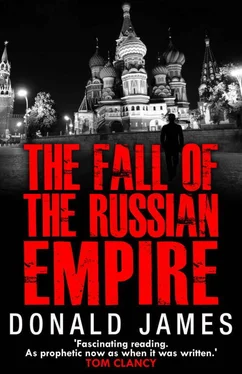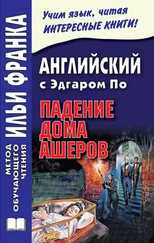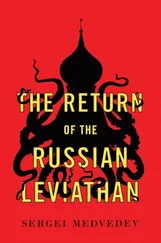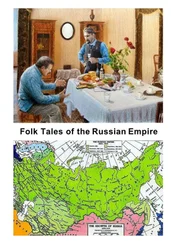“No heart attack?”
“Probably not.”
“And yet?”
She shrugged.
He stood, swaying slightly, the vodka bottle in his hand. “Think if we’d never met, Natalya. I would probably, even now, be living in the country. A simple thatched cottage, a hunting bag behind the door, children, a comfortable wife…”
“Fat,” she said. “With a hare lip and evil armpits.”
“Perhaps.” He drank from the bottle in his hand. “Why do you visit me in the dead of night, Natalya? What do you want from me?” He slapped his belly. “My body? You want my body?”
“Are you too drunk to talk seriously to an old friend?” she said sharply.
“God forbid,” he put the vodka bottle aside.
“After the rest of the Politburo left, I spoke to the doctors alone. They owed me a small favor. I think they repaid it with the truth. President Romanovsky is a very old man. You understand?”
He sat heavily on the arm of the sofa. “Semyon Kuba will block your way.”
“He’ll try,” she said.
“And what then?”
“Then you and all my friends will go down, too. Perhaps you especially.”
“Is this a warning?”
“Why not? I loved you once, as far I suppose as I’m capable. Let me arrange for you now to take some post in the West for a few months.”
He shook his head.
“If I fail, you’ll be the first to go, Igor. The past is all on Kuba’s files.”
“I can’t leave Russia,” he said.
“You could take your little secretary with you. Or find others in the West.”
“I can’t leave Russia,” he repeated. “And who knows, some day I might even be of help to you.”
She stood up. “The President’s doctors give him until the end of the year. At the most.” She put her arm round his waist as they walked to the door.
“The manuscript I sent you…”
“By your little secretary’s uncle, Valentin Kuletsyn.”
“Did you read it?”
“Yes, I read it.”
“A remarkable novel.”
She stood at the door, shaking her head. “Publication at a time like this? You’re mad, my little bear. Publish Kuletsyn’s novel in your magazine and I will have you arrested an hour after it’s issued.” She prodded him in the stomach. “Much as I love you.”
The Blue Bridge had not seen its last demonstration. During the week after the arrest of Joseph Densky factory workers in plants and enterprises in and around Leningrad held meetings. Some, like the meeting in the tunnels below the ancient buildings on the River Neva, were informed upon and broken up by the militia. Others, perhaps many others, went undetected. Certainly the authorities were aware that a committee had been formed to obtain the release of the Blue Bridge demonstrators, but it was unlikely that they guessed the extent and intensity of the Release Committee’s backing.
At that time the police commander in Leningrad was Lieutenant General Stefan Dora. Aged seventy-four (the retirement age for KGB generals was flexible), Dora had assisted in most of the extremities of Stalinism. As an assistant first to Yezhov and then to Lavrenti Beria, Stalin’s murderous chiefs of secret police, killing and enslavement had been part of Dora’s life for half a century. As a junior leader in the collectivization program before the war against Hitler, he had ordered machine gunners to fire on starving peasants. As commanding Soviet police officer in the Katyn area of Poland in 1940 he had carried out, on Stalin’s direct orders, the Katyn forest massacre of the officer corps of the Polish Army. He was one of those murderous functionaries that totalitarian systems breed, honor and reward. Sometimes they, too, disappear into the night, but General Dora’s time had not yet come.
Florid-faced, overweight and with a senile confidence in the power of sheer repression, Dora was certain that the steps he had taken in the Blue Bridge affair would effectively prevent any recurrence. Thus it was that when in his ornate office in Peter the Great’s Admiralty Building on the Nevsky Prospekt he was shown the first reports of the factory meetings, he was inclined to attach little importance to them. To a subordinate officer he assigned the task of identifying and arresting any worker who had attended a meeting. Again, the Blue Bridge technique would be applied. There would be no acknowledgment of the worker’s arrest. No relative’s questions would be answered. All knowledge of the prisoner’s whereabouts or fate would be denied.
But before the KGB could strike, the workers made their move. A week after the first demonstration three hundred men assembled quietly on the Blue Bridge. They wore their caps and fur hats pulled down over their eyes. Scarves were wrapped round the lower part of their faces. Their placards demanded the release of their fifty comrades. On the wide bridge, in the bitter, keening wind, they stood silently in six long columns, black figures hunched against the driven snow.
Laryssa Navratovna, a prostitute in her early thirties, could see everything from her third-floor window.
* * *
I won’t disguise from anyone what my profession was at the time. Nor will I make excuses. I was born in the last days of Stalin and both my parents died in a camp. There were thousands of us street kids at that time, roaming free to starve in the streets of Leningrad, the children of the millions the system had shipped off to Siberia. We lived like young wolves, in packs. We ate scraps, stole, sold what we could. Before I was fourteen I had discovered what I could sell: big blue eyes, a plump figure and a submissive willingness to do whatever the old goats wanted.
Frankly, for me it was a good life, at least as soon as I learned to choose my clients, because, dealing with foreign customers and Party members as I began to, the shortages didn’t much affect me. Of course all the days of reduced heating that winter had been bad for people, but again I had my own methods of keeping the place warm. What I’m saying is that I was lucky: a nice 350-square-foot apartment all to myself (and no question about how I got it) and the best of everything from the foreign currency shops or the Party seniors’ special store.
I was expecting a client that night or I would have been out on the Nevsky Prospekt, not streetwalking, of course, but sipping tea or coffee in one of the restaurants or hotels, the Kravkazky or the Progress Café on the corner of Suvorovsky Prospekt. They were the ones I favored.
My apartment looks right across the Blue Bridge and I could swear that by seven-thirty all was normal because several times I had been to the window to see if I could see the car of Committee Chairman Z — no names even now — draw up. The moment that happened I would race down six flights of stairs and let him in. He didn’t like to be kept hanging around outside. In those days he was quite a well-known face — or liked to think he was.
So I remember looking down at about seven-thirty and noticing that two or three men were standing on the bridge unrolling what looked like placards from under their jackets. I looked down, fascinated, and suddenly these few men were joined by others, six or seven at a time slipping quietly out of the shadows around the cathedral and forming up on the bridge until there must have been over three or four hundred of them. Then, of course, as luck would have it, my bell rang, four or five times, impatiently. I’d completely forgotten my fat little Committeeman.
Well, I raced down the stairs and let him in and by the time we got up to my apartment again we were both too exhausted to talk so I dragged him to the window and just pointed. Straightaway he got on the phone. To whom I don’t know, and I certainly didn’t ask. He shouted at me to get a glass of vodka and I rushed into the kitchen as he talked. By the time I was back with the glasses, he had finished phoning. But he didn’t feel like relaxing. Standing at the window, glass in hand, he glared down at the bridge.
Читать дальше












